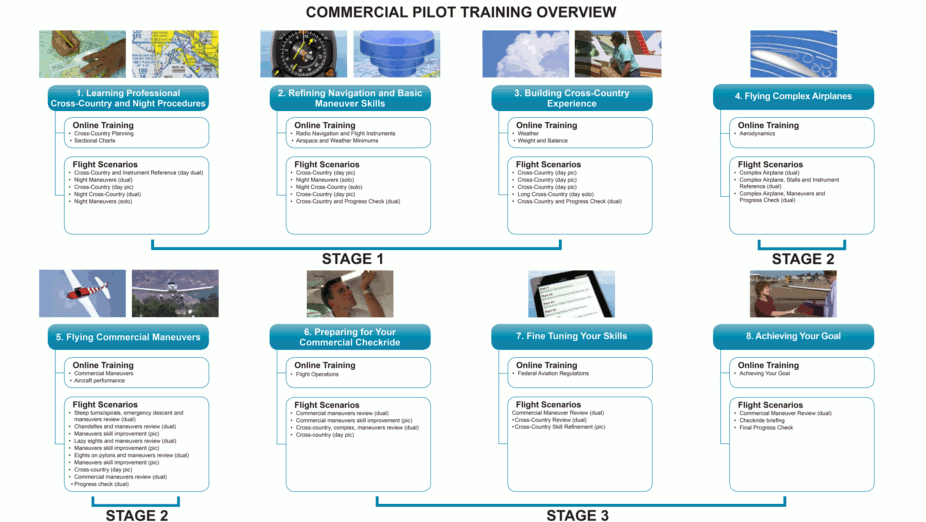Commercial Pilot Certificate
So you want to get paid to fly?
Achieving Commercial Pilot certification is the ticket to finally being able to receive compensation as a pilot. This certificate opens the doors to a wide variety of personally and financially rewarding flying opportunities. Commercial pilots are able to fly passengers for hire, transport cargo, or pursue a career as a flight instructor, charter pilot, airline pilot and much much more. The sky is the limit!
What are the prerequisites?
- Commercial pilot candidates must be at least 18 years old, able to read, speak, write, and understand English, and hold at least a private pilot certificate.
- Under CFR Part 61, a pilot needs at least 250 flight hours. That includes 100 hours of pilot-in-command time and 50 hours of cross-country. Cross-country flights are also part of the training; including one of three legs that is at least 300 nautical miles total with a single leg of at least 250 miles. Additionally, at least 10 hours of instrument training and 10 hours in a complex aircraft are required. All of these hourly requirements ensure that a commercial pilot is a proficient and experienced pilot.
- While it is not required to have an Instrument rating in order to be a Commercial Pilot, it is highly recommended. An Instrument rating is a practical transition from Private to Commercial. Without an Instrument rating, a Commercial pilot will not be allowed to fly for hire at night or venture further than 50 nautical miles from the home base airport. Most pilots do not want to incur these limitations. So typically they’ll get an instrument rating on the way to their Commercial status.
- Since a candidate must have a Private Pilot certificate to be a Commercial Pilot, chances are that they already hold at least a 3rd class aviation medical certificate. Commercial Pilots are still able to fly with a 3rd class medical; however, in order to utilize Commercial Pilot privileges, they must hold at least a current 2nd class medical. Obtaining a 2nd class medical is highly recommended before commencing commercial training. This ensures the student qualifies for the medical and doesn’t waste time and money on a certificate they can’t use.
- During commercial flight training, students learn new maneuvers and refine familiar ones.
Commercial Training Overview for Part 61 and Part 141 Training


